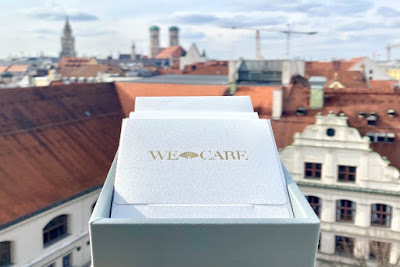The Mandarin Oriental Hotel Group (MOHG) pledge to eliminate all single-use plastic (SUP) across its portfolio of luxury hotels by end-March 2021 has encountered a delay due to slower-than-expected utilisation of existing SUP supplies due to low business levels. The group said the pandemic has led to temporary hotel closures and low occupancies, thereby slowing the depletion of existing stocks of plastic products by up to 12 months in some markets.
 |
| Source: MOHG. We Care packages for guests feature reusable fabric masks that are plastic-free. |
By the end of Q121, the group has achieved a nearly 70% reduction in its annual plastic footprint. Based on estimated plastic stock depletion timelines and supplier delivery commitments, it is expected that all hotels will eliminate SUP by the end of Q122, avoiding 930 tonnes of plastic waste each year.
SUP is being eliminated across all areas of the hotels, including rooms, spa, transport, restaurants and bars as well as in back-of-house areas not seen by guests, such as offices, colleague areas and kitchens. To help colleagues work through their efforts to eliminate SUP, the most common SUP items were identified across the three main operational departments: F&B, spas and rooms. Of these, six high-impact items accounted for 81% of the annual SUP waste generated:
- Garbage bags (294 tonnes per year)
- Water bottles (7.7 million bottles per year)
- Slippers (816,000 pairs per year)
- Vacuum bags for food (88 tonnes per year)
- Cling film (80 tonnes per year)
- Amenities - shampoo, conditioner and shower gel (4.9 million bottles per year)
The Group continues to focus on eliminating SUP where feasible. For example, We Care packages for guests include reusable fabric facemasks that are plastic-free, but made exceptions for toothbrush bristles and hygiene seals for F&B items such as beverages or candy jars. MOHG is also working with suppliers to reach its goals.
“Although our ambitious timeline to eliminate all single-use plastic from our premises by the end of March 2021 has been deferred by one year, largely as a consequence of the pandemic, we have made massive progress, with a majority of our hotels expected to reach the elimination goal by the end of July this year,” said James Riley, Group Chief Executive.
The Group will issue another progress update in Q421.


